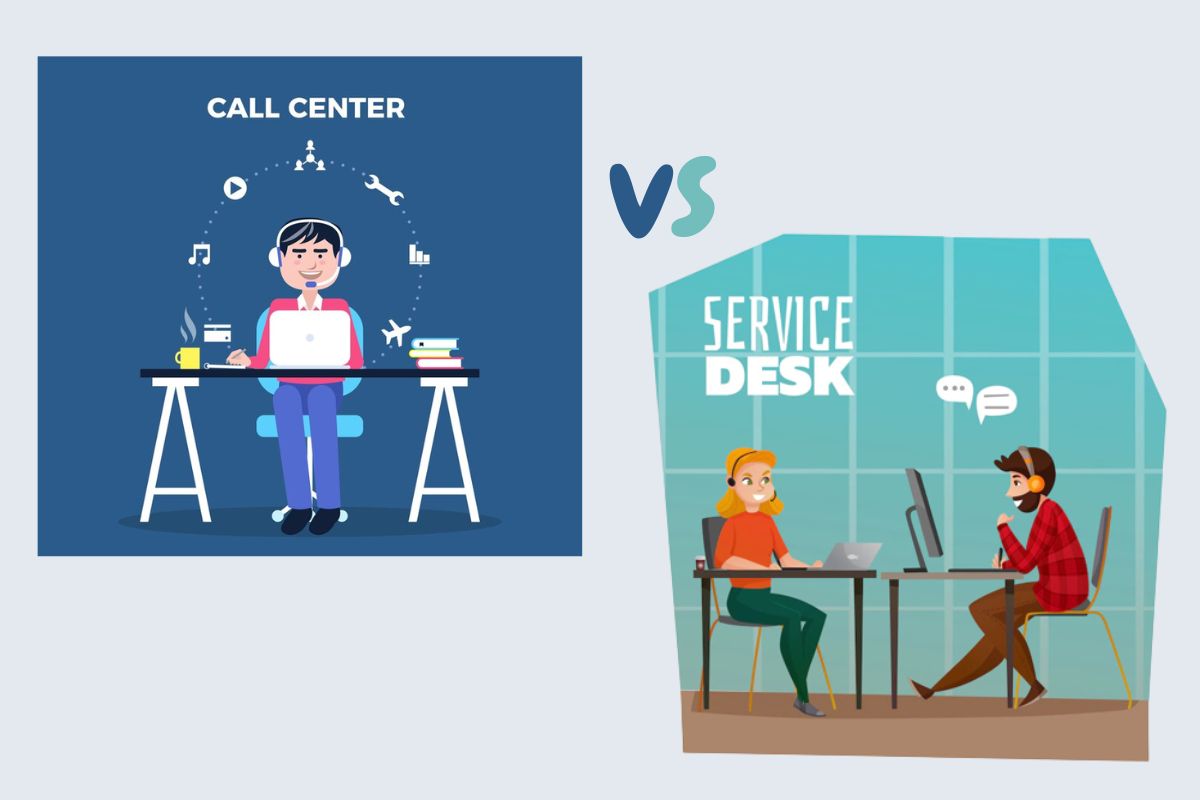
When managing a business, there are many software options to choose from. Two popular options are call center software and help desk software. While both options can be beneficial, there are some key differences between the two.
Here’s a look at the key differences between call center software vs help desk software to help you decide which option is right for your business:
1. Terminology
In terms of terminology, call center services are typically used to refer to a system that enables customer service representatives to manage high volumes of inbound and outbound calls. In contrast, help desk software is used to describe a system that gives customer support reps a way to track and resolve customer issues.
2. Features
Another difference between the two software is that different types of call center software often come with features like automatic call distribution (ACD), which helps route calls to the right agent based on skills or availability. Help desk software, on the other hand, generally doesn’t include ACD since it’s geared more towards managing written requests (e.g., via email or chat) rather than phone calls.
3. Extensibility
In terms of extensibility, call center software is typically more expensive than help desk software. This is because call center software generally has more features and is more customizable.
Additionally, call center software is often hosted on-premises, while some examples of help desk tools are typically cloud-based. This means call center software may require more IT resources to maintain and upgrade.
A survey from Deloitte revealed that about 53% of executives are moving their business operations to the cloud. In this regard, we can see that help desk software is a more impeccable technology strategy than call center software.
4. Customer Interactions
The fourth main difference between the two types of software is the way they handle customer interactions. Call center software is designed to manage large volumes of calls, while the best help desk software is better suited for managing email, chat, and other digital interactions. Help desk software solutions also typically have more robust self-service features, such as a knowledge base or FAQs section.
According to a research study by Oracle, over one in three companies say customers prefer to resolve issues without speaking to a human agent. In this case, help desk software may be more suitable than call center software.
5. Escalation Models
One of the biggest differences between call center software and help desk tools is how they handle escalation models.
Call center software is typically designed to handle large volume calls with minimal wait times. This means calls are quickly routed to the next available agent, and if no one’s available, the caller is placed on hold. This can be a good system for businesses that receive a high volume of calls, but it can be frustrating for customers who have to wait on hold.
Meanwhile, help desk software is designed to provide a more personalized experience. Calls are typically routed to a specific agent or team, and if no one’s available, the caller is given the option to leave a voicemail or send an email.
6. User Experience
When it comes to user experience, call center software is typically much more robust and feature-rich than help desk software. This means it can offer a more comprehensive and customized experience to users.
Additionally, call center software is often designed to be used by multiple users simultaneously, whereas help desk software is typically only meant for use by a single user at a time.
7. Pricing
As mentioned earlier, call center software is typically more expensive than help desk software because it offers more features and functionality. For example, call center software often includes features, such as automatic call distribution, caller ID, and call recording, which aren’t typically found in help desk software.
In addition, call center software is usually sold as a per-seat license, while help desk software is often sold as a subscription. Finally, call center software typically requires more hardware and infrastructure than help desk software.
8. Customer Success Management
Help desk software and call center software are both tools used to manage customer success. However, they have different features and functions regarding customer management or CRM.
Call center software is typically used by larger organizations that have multiple departments handling customer inquiries. It includes features, such as automatic call distribution that routes calls to the next available agent, and caller ID that helps agents identify customers. Call center software also has reporting tools (like the one in this Bridge24 review) that managers can use to track agent performance and call volume.
On the other note, help desk software is designed for smaller organizations or businesses that only have one customer service department. It includes features, such as ticketing that helps agents keep track of customer issues, and a knowledge base that provides answers to common questions. Help desk software also has live chat capabilities that allow agents to communicate with customers in real time.
So, Which is Better: Call Center or Help Desk Software?
Both call center and help desk software have their pros and cons. It really depends on the needs of your business as to which one would be better for you. If you need more features and customization, call center software would be the better choice. However, if you need something simpler and easier to use, help desk software would be a better option.
To make the most of your call center or help desk software, integrate them with a good unified communications auto dialing software such as ICTBroadcast, ICTBroadcast REST APIs enable it to integrate with any call center or help desk software to automate business processes and it will empower call center or help desk software to use multiple communications technologies to engage customers such as phone calls, sms messages, texting, fax transmission or email communications .